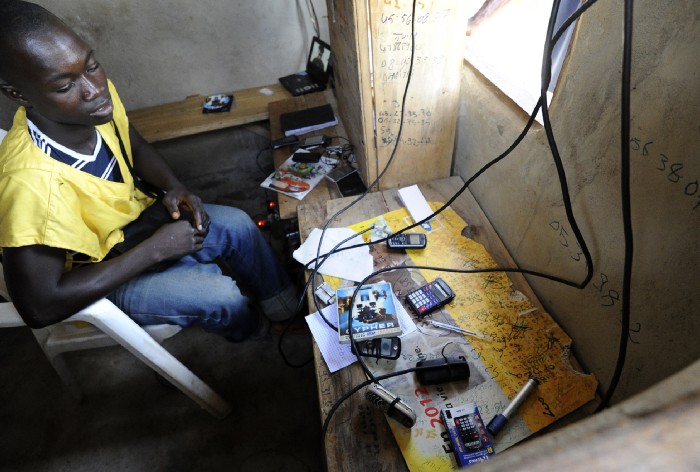
Digital technology is the subject of our time.
It’s more than just topic of so many articles, panels, talks, and books. Our technology serves as the very focus and direction of our society. But the more we look to our devices, platforms, and networks for an understanding of our collective situation, the further untethered we become from the real world in which we live.
We tend to look at technology as the subject of our concerns, and human society — human beings ourselves — as the objects being acted upon. In part this because we no longer use our technologies so much as our technologies use us. With every swipe of our fingers, our smartphone gets smarter about us as we get dumber about it.
Indeed, as long as we attempt to understand technology by the content pouring through its many screens, we will remain clueless about its real effects on our cultural, economic, and planetary environment. We simply become part of a feedback loop between people and a media landscape that is programmed to keep us distracted, atomized, and powerless.
In his new book, Beyond the Valley, Ramesh Srinavasan breaks this cycle. He recognizes the true ethos of Silicon Valley tech development: Earn enough money to insulate oneself from all the harm created from earning money in this way. It’s a page from the same rule book that has guided corporations since the era of the British East India Company. The object of the game is to extract as much value as possible by any means necessary, and then externalize the impact to people and places somewhere else. Digital technology platforms, with their illusion of cleanliness and hermetically sealed purity, hide their externalities even better than traditional Industrial Age enterprises. But the human slavery, environmental destruction, social alienation, economic oppression, and civic collapse they engender are just as real. Moreover, they now happen “at scale.”
The inwardly turned campuses of our tech monopolies keep their workers’ focus on the code and off the impact. (How can a company live by the credo “don’t be evil” if it’s not even looking beyond its webpage metrics?) Likewise, when our evaluation of power dynamics in a digital age relies on analysis of the companies themselves, the affordances they are embedding into their platforms, or even structural critique of their surveillance services and business plans, we risk losing sight of the bigger and more relevant picture. We end up trying to understand technology through the lens of the very technologies we’re trying to see. And in the process, we make them even more central to the story, relegating ourselves — humanity — to the background. Mere externalities.
That’s why it’s so important that a scholar of Srinavasan’s rigor and insight actually traveled the world to witness firsthand the impact of algorithms on electorates, ride-hailing apps on African cities, smartphones on indigenous Mexicans, and blockchain on the environment. In venturing beyond Silicon Valley and its user interfaces, he found rampant, underreported, and actively camouflaged devastation. Digital technology companies are killing people, enslaving children, undermining democracy, ruining economies, and destroying the environment, with full knowledge
But he also found people fighting back, subverting the intended functions of technologies to empower themselves and their communities. From Oaxaca, Mexico, where activists built community-owned digital networks that promote the solidarity and autonomy of indigenous people, to sub-Saharan Africa, where people and small businesses leverage the power of networks, not to compete, but to collaborate and exchange value. By subverting the extractive intentions of the technology companies seeking to colonize them, these people and places are staging nothing short of a revolution against the dominance of global corporate capitalism.
The more we learn about these efforts, the better we in the West—or, worse, those who have retreated almost entirely online—can begin to model these same approaches to restoring our collective agency and avoiding civilization-scale catastrophe. By reporting from the ground up, Srinavasan reminds us that in a world of digital domination, we are all indigenous people.
It’s time we act that way.